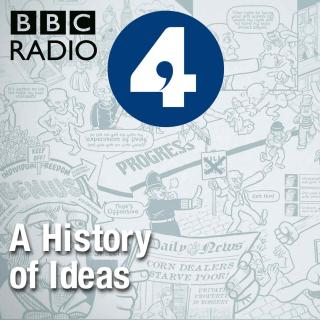
Theologian Giles Fraser on Religious Freedom
Theologian Giles Fraser thinks freedom is overrated. It has become a kind of tyranny or obsession. He is interested in the tradition of religious thinking that understands true liberation sometimes comes from accepting boundaries on life. His key thinker is the medieval philosopher and Franciscan monk William of Ockham whom he blames for this turn of events. Giles talks to Brother Sam, a contemporary Franciscan Monk, about the way his life of constraint has led him to feel free. Giles also talks to Phillip Blond, theologian and political adviser.This programme is part of a week of programmes looking at the history of ideas around Freedom.
13 Nov 201411min

Lawyer Harry Potter on Individual Freedom and the State
Harry Potter is a criminal barrister and watches people being let off and locked up for a living. He is interested in the ways the state can curtail our liberty. His key thinker is John Stuart Mill, the 19th century British philosopher who argued that the state should take a minimal role in the lives of its citizens.Harry talks to Mark Dempster, ex-drug addict, dealer and now counsellor about the limits of individual liberty and to Prof. Philip Schofield of University College London about JS Mill and his ideas.This programme is part of a week of programmes looking at the history of ideas around Freedom.
12 Nov 201412min

Philosopher Angie Hobbs on Positive and Negative Freedom
Angie Hobbs wants to tell you about two kinds of freedom - Negative and Positive. This influential philosophical distinction was made in the 20th century by Isaiah Berlin but it's rooted in the ideas of the hugely influential Greek Philosopher Plato.Negative freedom involves getting things out of your way - be it the state, the police or your parents. Positive freedom is the ability to take command of your own self and make decisions that are in your own interest.Berlin used the metaphor of doors: Negative freedom concerns the number of doors open to you. Positive Freedom is about how you choose between them.Angie talks to conservative MP and ex-banker Jessie Norman and to environmental activist and ex-Jain monk Satish Kumar to see how these two ideas of freedom can co-exist.This programme is part of a week of programmes looking at the history of ideas around Freedom.
11 Nov 201411min

What Does It Mean to Be Free?
A new history of ideas presented by Melvyn Bragg but told in many voices.Melvyn is joined by four guests with different backgrounds to discuss a really big question. This week he's asking what does it mean to be Free?Helping him answer it are philosopher Angie Hobbs, criminal barrister Harry Potter, neuropsychologist Paul Broks and theologian Giles Fraser.For the rest of the week Angie, Giles, Harry and Paul take us further into the history of ideas with programmes of their own.Between them they'll talk about Isaiah Berlin's distinction between positive and negative freedom, JS Mill's thoughts on individual liberty and the state; what neuroscience has to say about the age-old philosophical debate about free will and whether freedom is overrated as a political, moral and psychological concept.
10 Nov 201411min




















